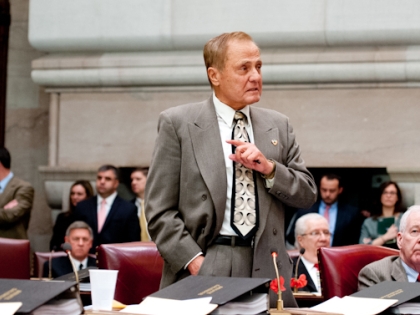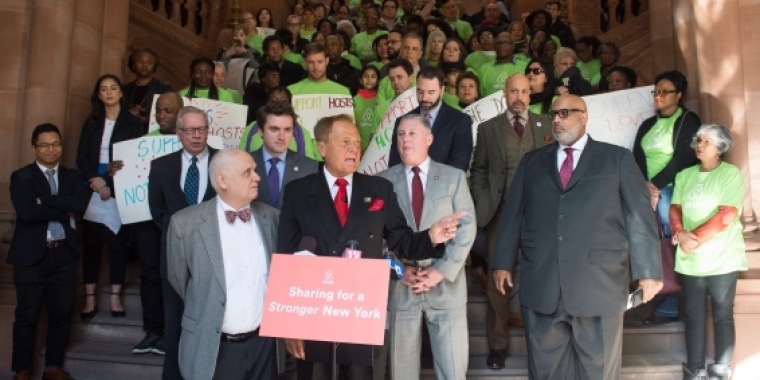
Senate Passes Legislation to End Mta Tax
Bonacic co-sponsored Legislation Ends Discriminatory Tax
Legislation co-sponsored by State Senator John Bonacic, which repeals the MTA payroll tax in the Hudson Valley and Long Island, passed the State Senate today. For the Hudson Valley and Long Island regions, the legislation phases out the payroll tax reducing it from $.34 per $100 in payroll in 2011, to $.23 per $100 in payroll in 2012, $.13 per $100 in payroll in 2013, and is eliminated completely effective January 1, 2014.
In addition, The MTA payroll tax would be eliminated immediately for public and non-public schools, the self-employed, and employers with twenty five or fewer employees beginning on January 1, 2012.
“The MTA tax is taxation without transportation. It was the clearest example of what happens when one political party controls all of New York State government. This legislation offers a reasonable way to eliminate a tax that should never have been enacted,” Senator Bonacic said.
The MTA payroll tax was enacted in 2009, when all of State government was controlled by Democrats. The tax is particularly unfair because it taxes local payrolls – including that of small business and local governments. Local employers of course, do not generally rely on the mass-transit services used by the MTA. Local governments have had to raise property taxes or cut services to fund the tax. Our not-for-profits have had to cut services in order to pay for this punitive tax.
Town of Deerpark Supervisor Karl Brabenec lauded the Senate’s actions, and urged area Assembly Democrats stand up and also repeal the tax. “That continued loyalty to Sheldon Silver of this area’s Assembly Democratic delegation, and Assembly Democrats’ continued failure to address things like property tax reform, tax exempt land reform, and MTA payroll tax reform demonstrates how one-sided the Assembly operates. I urge area Assembly Democrats to start walking the walk and repeal this tax, not merely make noise about it without any results.”
After passage in the Senate, the legislation was sent to the Assembly, where it is eligible to be taken up if the ruling Democratic majority in the Assembly chooses to.
###



